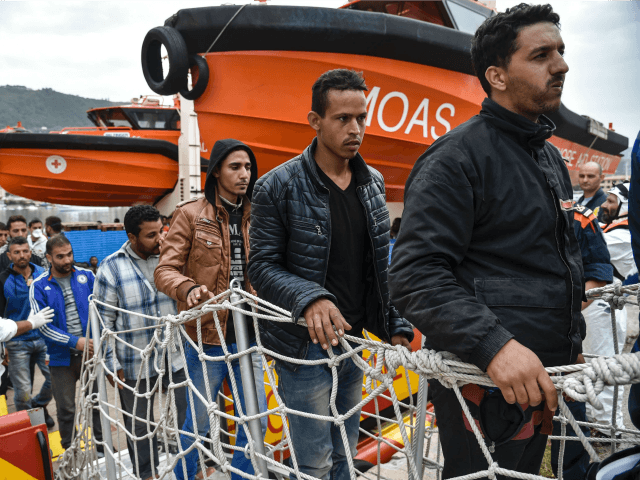Migration from Libya to Europe has increased in the last year, is expected to increase further, and consists overwhelmingly of young men, who are mostly economic migrants, a new United Nations study has found.
The study, commissioned by the Office of the U.N. High Commissioner for Refugees, found that the Central Mediterranean (Libya to Italy) route was the most popular route for migrants and refugees looking to get into Europe.
“Libya is by far the preferred jumping off point for refugees and migrants from Africa hoping to reach Europe; yet it is particularly unsafe,” the report found.
The report included interviews with refugees and migrants from Libya, Algeria, Chad, Italy, Niger and Tunisia in 2016, found that 80 percent of the refugees and migrants traveling the route to Europe were young men. Their average age was 22 and the vast majority were traveling alone — bursting the narrative that the migrants crossing the Mediterranean into Europe are families.
“Foreign nationals coming to Libya are predominantly young, single men with a low level of education. A majority reports moving to or migrating through Libya for economic reasons,” the report said.
It notes that there are a number of reasons why migrants were heading to Libya, including political persecution, fleeing violence, and economic distress:
Not all those coming to Libya intend to go to Europe: about half of them claim they wish to remain there either permanently or temporarily, before returning to their countries of origin. Most of those who intend to stay are drawn to the country’s job opportunities. However, the lack of stability, security and rule of law, the economic crisis and widespread abuse and exploitation pushes some of these to also attempt to reach Europe.
The study found that many of those migrants in Libya, many of whom will subsequently travel to Europe, includes people from other countries including Sudan, Somalia, and Syria. The Obama administration named Libya, Syria, Somalia and Sudan as “countries of concern” and placed restrictions on travel from those and other countries. The Trump administration used that list when placing further restrictions on travel in 2017 — a move that became known as President Trump’s “travel ban.” The constitutionality of that ban is now before the Supreme Court, with the ban in place only in limited effect.
The U.N. has been struggling to gain control of the situation in Libya, and recently appointed Ghassan Salame to the role of Special Envoy. Salame has been on the board of George Soros’ Open Society Foundations for years. The U.N. has promised to step up efforts in Libya to combat the refugee crisis and the instability rocking the region as a whole.
“In recent years, movements by sea from Libya to Europe have increased and the indications are that it is likely to stay this way,” the report found.
Yet last month Secretary-General Antonio Guterres criticized developed nations who are closing their borders and held Uganda up as a model for the international community to follow.
The report calls for greater humanitarian assistance, and more border monitoring and sea rescue among its many recommendations for U.N. agencies to implement, as well as the “decriminalization of irregular migration.”
Adam Shaw is a politics reporter for Breitbart News based in New York. Follow Adam on Twitter: @AdamShawNY

COMMENTS
Please let us know if you're having issues with commenting.